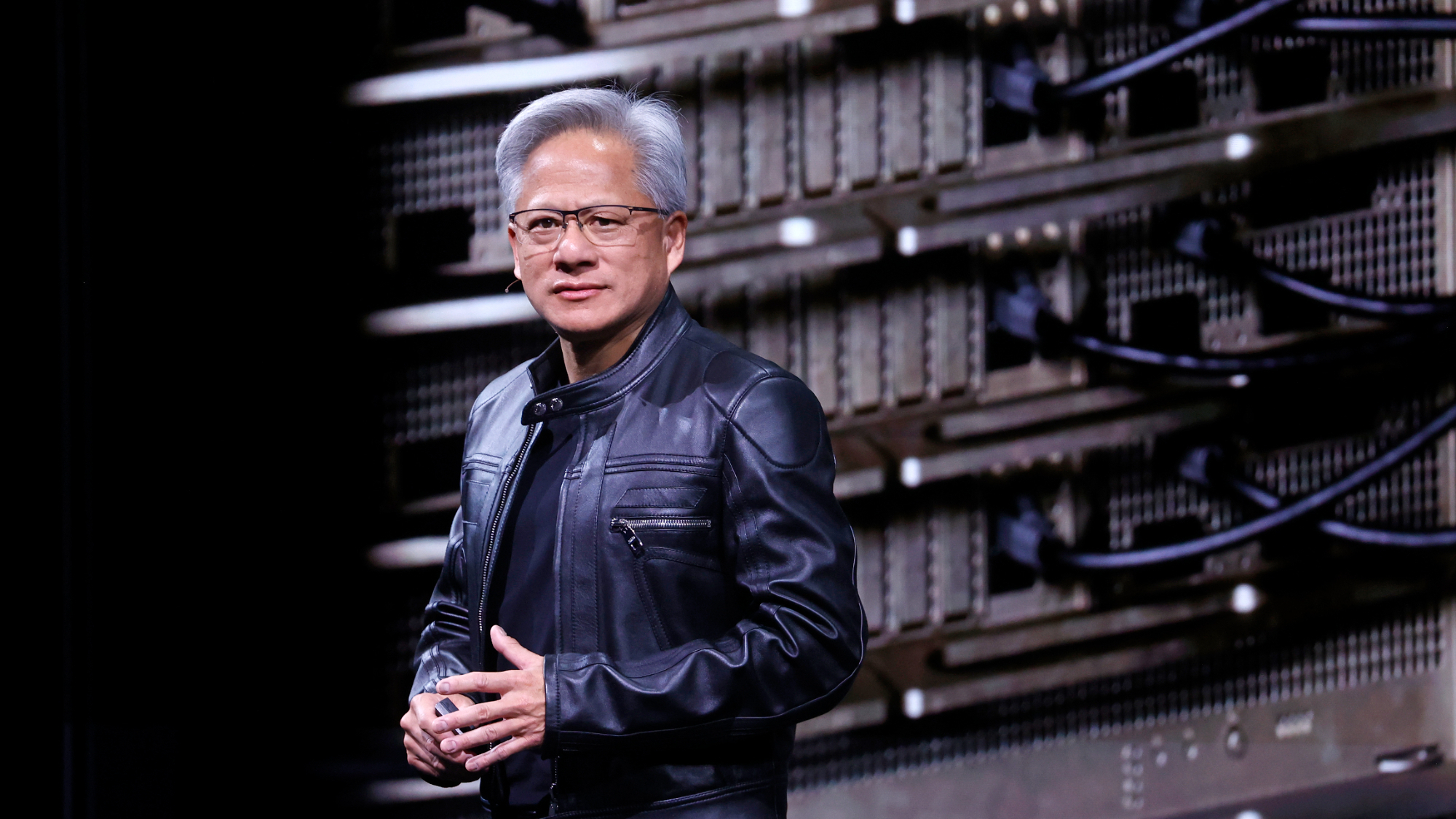Jensen Huang says China's military will avoid U.S. AI tech — 'they don’t need Nvidia’s chips or American tech stacks in order to build their military'
Just like how the U.S. military avoids using Chinese tech, he expects that the PLA won't use American technologies.

Nvidia CEO Jensen Huang has downplayed Washington’s concerns that the Chinese military will use advanced U.S. AI tech to improve its capabilities. Mr. Huang said in an interview with CNN that China’s People’s Liberation Army (PLA) will avoid American tech the same way that the U.S.’s armed forces avoid Chinese products.
This announcement comes on the heels of the United States Senate’s open letter [PDF] to the CEO, asking him to “refrain from meeting with representatives of any companies that are working with the PRC’s military or intelligence establishment…or are suspected to have engaged in activities that undermine U.S. export controls.”
Washington is concerned that the PLA might utilize this to develop advanced weapons systems, intelligence systems, and more, prompting a bipartisan effort to deny China access to the most powerful hardware over the past three administrations. However, Huang has often publicly said that the U.S. strategy of limiting China’s access to advanced technologies was a failure and that it should lead the global development and deployment of AI.
“…Depriving someone of technology is not a goal, it’s a tactic — and that tactic was not in service of the goal,” said the Nvidia CEO during the interview. “Just like we want the world to be built on the American dollar, using the American dollar as the global standard, we want the American tech stack to be the global standard.” He also added, “In order for America to have AI leadership, it needs to make sure the American tech stack is available to markets all over the world, so that amazing developers, including the ones in China, are able to build on American tech stack so that AI runs best on the American tech stack.”
When Zakaria asked him about the Chinese PLA’s use of this tech, Jensen said that it’s not going to be an issue. “The Chinese military [is] no different [from] the American military: [they] will not seek each other’s technology to be built on top [of each other]. They simply can’t rely on it — it could be, of course, limited at any time,” Jensen answered. “Not to mention, there’s plenty of computing capacity in China already. If you just think about the number of supercomputers that are in China, built by amazing Chinese engineers, that are already in operation — they don’t need Nvidia’s chips or American tech stacks in order to build their military.”
Despite what he says, China has been heavily investing in AI data centers, and companies within the country are explicitly sourcing Nvidia’s most powerful products, even the ones that the U.S. has put export controls on. And even though Huang said that there’s no evidence of AI chip diversion, it’s widely reported that you can easily get these banned chips in the Chinese black market, with one businessman even showing off his smuggled GPUs on social media.
Chinese operators of these smuggled AI chips would have a harder time getting firmware updates and likely won’t have access to Nvidia’s advanced cloud tools and enterprise platforms. However, because Nvidia still sells export-compliant GPUs to China, the platform and cloud software can still potentially work with the banned higher-power equipment.
Get Tom's Hardware's best news and in-depth reviews, straight to your inbox.
Aside from that, it will probably be difficult for the U.S. to disable these AI GPUs remotely, if it comes to that. After all, Nvidia would have a harder time selling its chips if a way to disable them remotely exists — that’s why the U.S. has a bill in the works that could force geo-tracking tech on high-end hardware. Even if there is such a technology, China can just air gap the systems to prevent them from being remotely killed.
Follow Tom's Hardware on Google News to get our up-to-date news, analysis, and reviews in your feeds. Make sure to click the Follow button.

Jowi Morales is a tech enthusiast with years of experience working in the industry. He’s been writing with several tech publications since 2021, where he’s been interested in tech hardware and consumer electronics.
-
hotaru251 Reply“In order for America to have AI leadership, it needs to make sure the American tech stack is available to markets all over the world, so that amazing developers, including the ones in China, are able to build on American tech stack so that AI runs best on the American tech stack.”
replace American with Nvidia and it is his true meaning. -
blppt Reply"I have had it with this guy. He's so transparently full of stuff. Nvidia hit a $4 trillion market cap recently? ... but that's not enough for Jensen."
To be fair, its always been a common trope in business that if you aren't growing, you're dying.
Still, we can be disgusted at the blatant greed. -
pug_s Replyblppt said:To be fair, its always been a common trope in business that if you aren't growing, you're dying.
Still, we can be disgusted at the blatant greed.
I say let the Chinese make AI accelerators and so Nvidia will start focusing on selling affordable Graphics cards again.